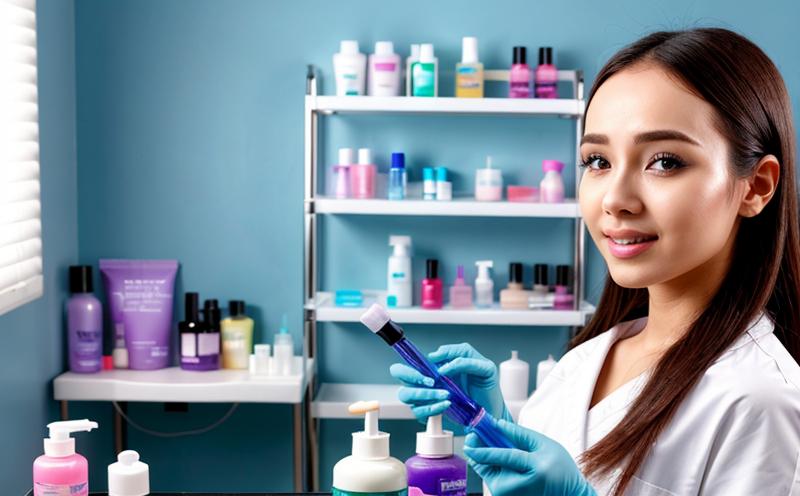AOAC 991.14 Aerobic Plate Count Testing in Cosmetic Products
The AOAC Official Method 991.14 provides a standardized approach for determining the aerobic plate count (APC) of microorganisms present in cosmetic products. This method is essential for quality control and ensuring product safety, especially in the cosmetics sector where microbial contamination can lead to spoilage or health risks.
The procedure involves inoculating petri dishes with dilutions of the cosmetic sample and incubating them under controlled conditions. After a specified incubation period (typically 3 days at 35°C), colonies are counted and converted into CFU/mL, which represents the number of viable microorganisms per milliliter.
This testing is critical for ensuring that products meet regulatory requirements and industry standards such as ISO, ASTM, and IEC. Regulatory bodies like the FDA (US) or ECOCERT (EU) require cosmetic manufacturers to demonstrate that their products are free from harmful microorganisms.
The primary goal of APC testing in cosmetics is to ensure product stability and safety by identifying any potential contamination early. This can help avoid recalls, legal issues, and damage to brand reputation. By using AOAC 991.14, manufacturers can demonstrate compliance with global standards and maintain consumer trust.
Microbial growth in cosmetic products can lead to product spoilage or the spread of pathogens if not controlled properly. The APC test helps identify such issues at an early stage, allowing for corrective actions to be taken promptly. This is particularly important given the wide range of ingredients used in cosmetics and the diverse environmental conditions under which they are stored.
For instance, certain preservatives like parabens can inhibit microbial growth but may not eliminate all microorganisms. The APC test can help determine if there are any residual levels of bacteria or fungi that could pose a risk to consumers. Additionally, this method helps in assessing the effectiveness of new formulations and ingredients aimed at improving product stability.
The AOAC 991.14 procedure is applicable not only to finished cosmetic products but also during formulation development and quality control stages. This allows for continuous monitoring of microbial levels throughout the production process, ensuring that final products meet stringent hygiene standards.
Scope and Methodology
| Step | Description |
|---|---|
| Inoculation | Dilute the cosmetic sample and inoculate petri dishes with appropriate dilutions. |
| Incubation | Incubate the plates at 35°C for 72 hours under aerobic conditions. |
| Counting | After incubation, count the colonies on each plate and calculate the APC in CFU/mL. |
The method is designed to be sensitive enough to detect low levels of microorganisms present in cosmetic products. It relies on standardized dilution techniques to ensure accurate results across different product types and formulations.
Industry Applications
- Quality Control: Ensuring that each batch meets the required microbial limits.
- Product Development: Identifying potential sources of contamination during formulation stages.
- Regulatory Compliance: Demonstrating adherence to international standards like ISO and FDA guidelines.
- R&D: Evaluating new ingredients and formulations for their impact on microbial stability.
| Application | Description |
|---|---|
| Bottled Water Testing | Determining the presence and levels of aerobic bacteria in bottled water. |
| Pharmaceutical Products | Evaluating the microbial load in pharmaceuticals to ensure they are free from contaminants. |
The APC test is widely used across various industries, including food and beverage, where microbial contamination can affect product safety and shelf life. In cosmetics, it ensures that products remain stable and safe for consumers over extended periods.
Eurolab Advantages
At Eurolab, we offer comprehensive AOAC 991.14 testing services tailored specifically to the needs of cosmetic manufacturers. Our team of experts ensures that every sample is processed accurately and efficiently, providing reliable results within strict timelines.
- ISO/IEC 17025 Accreditation: Ensuring the highest standards in laboratory practices.
- Experienced Technicians: Our staff has extensive experience in handling complex samples with precision.
- Advanced Equipment: We use state-of-the-art equipment to provide precise and repeatable results.





